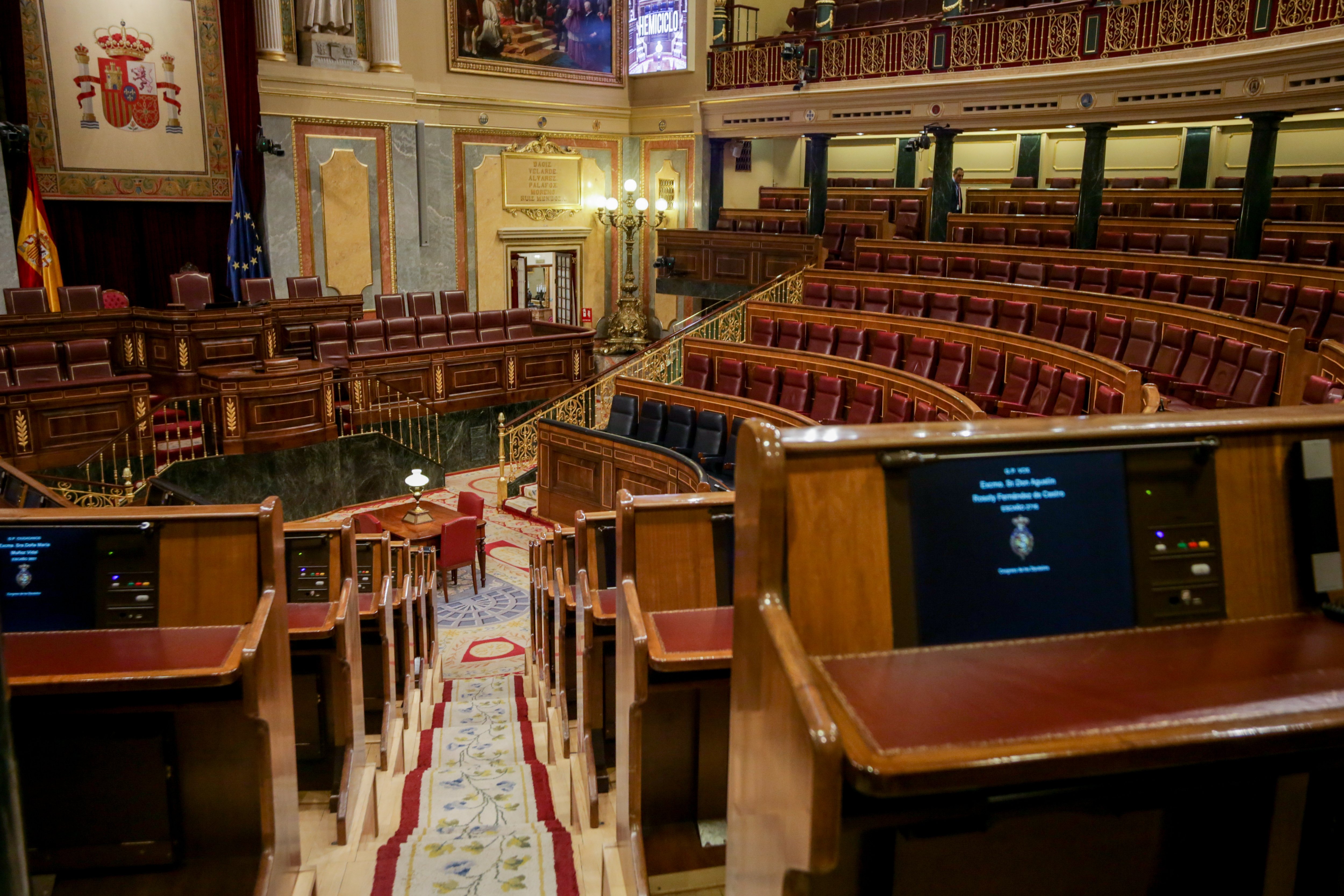Lawyers' objections rejected. The Bureau, governing body of the Spanish Congress, has this Wednesday rejected a controversial report by parliamentary lawyers and resolved that Catalan, Aranese, Basque and Galician can be used orally in the Spanish lower house from next week, in the plenary of September 19th. Thus, the proposal of the speaker, Francina Armengol, to move rapidly to fulfill one of the commitments she and her Socialist (PSOE) party made to obtain the key position, has been imposed. It is, in the end, a simple agreement that will involve the hiring of the same translators who currently work in the Senate specifically for next week's plenary sessions in Congress. The translators will have to translate simultaneously, providing audio feeds that will be available to parliamentarians, in the four languages that are classed as official in different autonomous communities; and deputies will also be able to use other Iberian languages such as Asturian, which are not official, but are considered part of the state's heritage. But, in these cases, the deputy will have to make a "self-translation into Spanish", as reported by sources close to the speaker of the lower house.
It will be in the plenary session on Tuesday, September 19th, that the chamber will vote, under urgency, on the reform of the congressional regulation that will allow the use of the co-official languages. It is, in fact, a date that coincides with the European Council meeting which is to decide on the officiality of Catalan in the European institutions. Then, as sources close to the speaker explain, a slow process will begin, to create all the infrastructure in the institution to normalize the use of these languages and thus enable them to be used in the same way as Spanish. Once the regulations are reformed, the parties will, for example, be able to start submitting papers in these languages.
Facing the consideration of the Bureau this Wednesday was a report from the parliamentary lawyers which did not look favourably on the ability to carry out a speedy reform of the rules of Congress. The chamber's legal services considered it "very difficult, if not impossible", to apply a rapid reform of the regulations of this institution "immediately or in the short term" so that Catalan, Aranese, Basque and Galician could be used there on an equal footing with Spanish, both orally and in written submissions.
In this report, the lawyers warned that the implementation of the new regulations would require a "rethink" of the procedures as they are currently conceived. In other words: the parliamentary lawyers cooled down the intentions of Francina Armengol to fulfill the Junts demand, backed by ERC, as soon as possible. This does not mean that they were strongly opposed to it: they accepted the reform proposal for processing, and did not object to debating it in a direct procedure and under a single reading. But its application, the lawyers said, could take longer than expected.
What exactly did the legal report say?
The lawyers presented a report in which they recognized that "deputies have a general right to use" the four co-official languages which are co-official along with Spanish in different territories of the state, and to so "without limitations and in all areas of parliamentary activity". But they asserted that "the application of its terms, immediately or in the short term, is very difficult, if not impossible".
"And this is because the proposed reform comprehensively affects all the procedures, as well as all the regulatory deadlines and, moreover, the entire functioning of the Congress", said the lawyers, who went so far as to say that, "to guarantee the legal certainty and the rights to exercise the office, it will be necessary to rethink all parliamentary procedures, as they are currently configured".
The experts argued that the recognition of the exclusive use of the co-official languages other than Spanish "inexcusably requires" mechanisms for translation and interpretation into these languages. "From the moment that other languages are allowed to be used, it will be necessary to ensure, on the one hand, the understanding of the debate and its purpose, and on the other, to give full legal validity and effects to the initiatives which are discussed and which may be approved," as well as, more broadly, "to all the documents, whatever their nature, that must be processed in the chamber", specified the report from the Congressional legal services.

